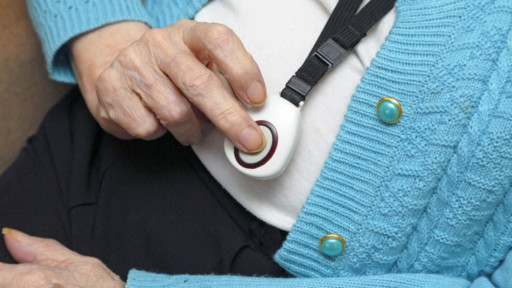
NEW YORK - October 27, 2021 - (Newswire.com)
When choosing medical alert devices, there are some important things to keep in mind. No two devices are the same, so it's critical that consumers examine all the features and read reviews to figure out which one will work best for their situation. For additional information, Everyday Health has a list of the best medical alert devices.
Monitored vs. unmonitored medical alert devices?
The first step is for consumers to decide whether they want the full coverage of a monitored device or if they just need an unmonitored system. A monitored device provides 24-hour access to a monitoring center at the push of a button.
Dispatchers are trained to assess the situation and decide whether to send emergency personal or take some other action. Patients who are able to speak with the dispatcher can do so via the base station or speaker on their wearable device.
However, unmonitored systems do not provide access to a call center. Instead, the device calls a friend or family member and alerts them to the problem. In most cases, devices will run through a list of friends or family members and, if no one is reached, will then contact emergency services. However, assistance is not guaranteed around the clock like it is with monitored medical alert devices. Additionally, consumers will need to pay a subscription fee for monitored services, while unmonitored services may not require a subscription.
Check the features
Perhaps the most important thing to do when reviewing medical alert devices is to check the features and determine which ones the patient will use. Many systems offer more features than some patients need or want, but there's no need to pay for features they won't use.
For example, automatic fall detection may be a need for patients who have suffered falls in the past, but it might not be a necessity if that isn't the sort of health problem they have. Buyers should also consider whether they want in-home or mobile protection.
Mobile medical alert devices can enable consumers to locate family members with Alzheimer's who wander off. At the same time, in-home systems may be perfect for patients who suffer falls or take medication that may cause side effects requiring medical attention. Other possible features include medication reminders and automatic dispensers and water resistance, which could enable the medical alert device to be worn in the shower.
Other things to consider include battery life, whether there is a backup battery for the base unit if the power goes out, the range of the device, whether it requires a landline or uses a cellular connection, and whether there is a mobile app or online portal.
Choosing from the many medical alert devices on the market is a big task, but with a little preparation, consumers can easily choose the best one for them or their loved one. Medical alert devices play an important role in home safety.
Press Release Service by Newswire.com
Original Source: How to Choose Medical Alert Devices

